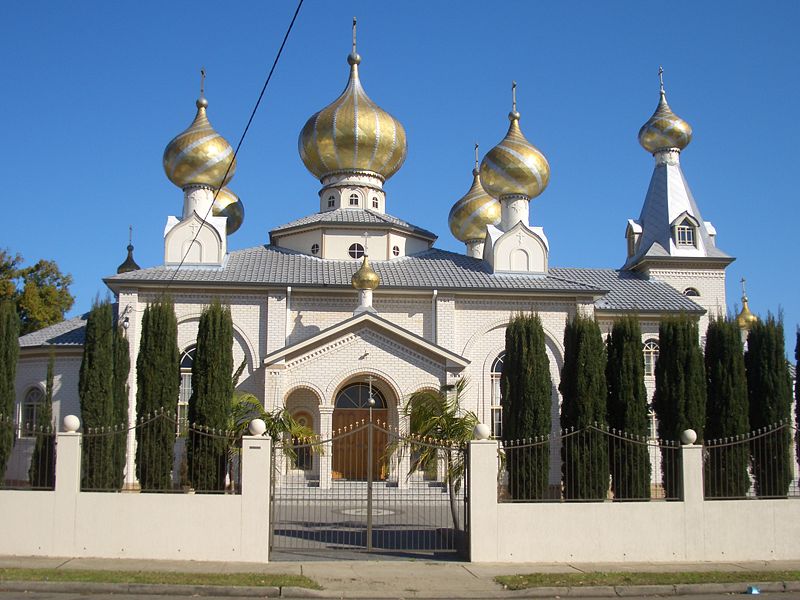Throughout the 20th century, a tenuous relationship existed behind the Iron Curtain between church and state. The Russian Orthodox Church, originally suppressed by the Bolsheviks in the 1920s, was temporarily revived to channel patriotism during the Second World War, only to be once more subdued by Nikita Khrushchev once the war was won and its role fulfilled. However, with the sudden collapse of the Soviet Union in 1991, the Church surged in popularity, and the Russian government saw an opportunity to once more tap into religious fervor for political capital.
The revival of the Russian Orthodoxy is due in no small part to Vladimir Putin’s own endorsement. The Levada Center, a non-governmental polling organization, published data in 2012 indicating that the number of Russians who identified as Russian Orthodox had risen from 31 percent in 1991 to nearly 70 percent in 2011. Russia’s renewed religiosity has been a boon for Putin’s political party, United Russia, as they’ve used it to foster support among the conservative citizenry.
The highly publicized trial of the punk-rock band, Pussy Riot, for instance, played well with the public. In August 2012, the band-members were convicted of “Hooliganism motivated by religious hatred”, which is odd, because the band’s protest was clearly motivated by hatred for Putin, not the church. In fact, the song they performed was literally titled “Punk Prayer — Mother of God, Chase Putin Away!”. Yet, by framing the issue in a religious light, Putin was able to consolidate support and deflect criticism. In a similar vein, the church has proven to be of use in the international realm as well.
Increasingly, Putin has been working to manufacture cultural and political links with nations in his near-abroad. One such example is the Russkiy Mir Foundation, a government-funded program introduced by Putin in 2007 that is closely partnered with the Church. The foundation serves as a conduit through which he can promote Russian linguistic and cultural ties in former Soviet satellite states.
The upshot for such uses of soft power is simple. If Putin can convince aspiring separatists in neighboring nations that they’re more connected with the East than the West, they’ll reject NATO’s expansion and come under the sway of a receptive Russia. The ramifications of this concept have already begun to materialize in Eastern Ukraine in 2014 and Moldova’s Transnistria in recent months. One such incident occurred in the Ukrainian town of Slovyansk, where a church cultural center owned by the Ukrainian branch of the Russian Orthodoxy was accused of storing ammunition on church grounds and regularly blessing separatist fighters.
In Ukraine, there are three separate orthodox systems, only the largest of which, and the one accused of aiding separatists, is actually under the authority of Russian Patriarch Kirill. Publicly, Kirill has attempted to appear impartial in Ukraine’s affairs, for fear of alienating Ukrainian worshipers who overwhelmingly side against the separatists. If the Russian arm of the Church appears to endorse those separatists, there exists the possibility of Kirill losing a sizable portion of his Ukrainian flock. As a result, a possible schism has emerged between the Kremlin, which supports the low-cost conflict next door, and the Church, which is attempting to distance itself from international criticism.
The Russian Orthodox Church is certainly more nuanced than a simple mouthpiece of the Kremlin, but their coordinated maneuvering since 2007 is undeniable. Indeed, Kirill has even gone so far as to call Putin “a miracle of God”. Recently though, Kirill met with British religious leaders and offered optimistic remarks on the possibility of cooperation between the east and west. It will be interesting to see how his mediation plays with the Kremlin. Perhaps Kirill is merely performing lip service for Putin, fielding bullish comments in order to further Putin’s hidden agenda. Or, perhaps, he is in fact going against the Russian president’s wishes and, in turn, drastically over-calculating the Church’s reach.
Kyle Rempfer is a sophomore government & politics and Russian major. He can be reached at krempfer@terpmail.umd.edu.



